Mocks, or mock exams, are often seen as just a “practice run” for the real thing, but they’re much more than that. These early assessments give you a sneak peek into how well you’re likely to do in your final exams, while also highlighting areas you need to work on. The importance of preparing properly for mocks cannot be overstated—they set the foundation for your revision strategy, help you build exam confidence, and are a vital component of your academic success.
In this guide, we’ll look at how to prepare for your mocks, why it’s essential to take them seriously, and some tips to make sure you’re ready when the time comes.
Why Mocks Are Important
Mocks serve a variety of purposes that make them far more significant than just a “practice” exam:
- Gauge Your Current Level: Mocks give you a realistic view of your current strengths and weaknesses. This helps you understand where you need to focus your revision efforts.
- Familiarise Yourself with Exam Conditions: The experience of sitting in an exam hall, adhering to a time limit, and answering questions under pressure is invaluable. It helps you manage your time, stress, and concentration during the real exams.
- Spot Your Weaknesses Early: Mocks are an early opportunity to identify subjects or topics you may struggle with. Catching these weaknesses months before the final exams allows you plenty of time to improve.
- Boost Your Confidence: By treating mocks as seriously as the final exam, you build your confidence. When the real exams roll around, you won’t be as overwhelmed because you’ll already know what to expect.
- Provide Key Insight for Teachers: Teachers use mock results to gauge how well you’re progressing. This allows them to offer tailored advice on how to improve your grades, providing an extra layer of support.
- Create Revision Plans Based on Real Performance: Your mock exam results allow you to create a more targeted and efficient revision plan, focusing on areas where you need to improve the most.
Top Tips to Prepare for Your Mocks
Treat Them Like the Real Exam!
It’s tempting to see mocks as just a practice run, but this mindset can be counterproductive. Instead, treat them with the same seriousness and dedication you’d give to your final exams. This means starting your revision early, completing practice papers under timed conditions, and revising thoroughly.
Mocks help build your exam stamina. Sitting through long exams can be tiring, so practising under realistic conditions helps you get used to staying focused for extended periods.
Make a Revision Timetable
A well-structured revision timetable is the backbone of your preparation. Allocate enough time for each subject and make sure you mix up different subjects to keep your mind fresh.
Use your mock timetable to plan your revision schedule backward. If your mock exams start in December, work out how many weeks you have left and allocate specific subjects or topics for each week.
The key is to stick to the timetable—consistency is essential. You don’t want to cram all your revision into the final week. Spreading your revision out ensures you retain information better and allows you to identify any topics you need to go over again.
Prioritise Weak Areas
Mocks are an opportunity to identify where you’re struggling, so it’s essential to spend more time revising these areas. If you’re naturally good at maths but struggle with history, it’s easy to fall into the trap of spending more time on maths because it feels rewarding. However, this won’t benefit your overall performance.
Use past tests, quizzes, and classwork to identify your weak areas, and dedicate extra revision time to them. It might be tough at first, but pushing through those challenging topics will make a massive difference in the long run.
Practise Past Papers
One of the best ways to prepare for any exam is by practising past papers. These give you an idea of the types of questions you’re likely to face and help you become familiar with the structure of the exam.
When doing past papers, make sure you time yourself to replicate exam conditions. It’s important to get used to the pressure of answering questions within a limited time frame. Mark your answers honestly and pay attention to areas where you make repeated mistakes. This helps you know what to focus on in your next revision session.
Take Care of Yourself
While it’s important to dedicate time to revision, you must also take care of yourself. Exam preparation is mentally exhausting, and it’s crucial to avoid burnout.
Make sure you’re eating well, getting enough sleep, and incorporating breaks into your study routine. Taking a short walk, doing some light exercise, or simply stepping away from your desk for 10 minutes can help refresh your mind and improve your focus.
Work with Friends or Study Groups
Studying with friends can be beneficial, especially if you’re struggling with motivation. Forming a study group allows you to share notes, test each other, and discuss difficult topics. You can also learn from others’ strengths and gain new perspectives on tricky questions.
However, make sure your study group stays focused. It’s easy to get distracted when you’re with friends, so keep group sessions structured and on-topic.
Ask for Help
Don’t be afraid to ask for help when you need it. Whether it’s from your teacher, a tutor, or a classmate, getting clarification on topics you don’t understand is crucial. The earlier you seek help, the more time you’ll have to grasp difficult concepts before your mocks.
Teachers are often happy to offer extra support, so take advantage of any revision classes or one-on-one sessions they might offer.
How to Make the Most of Your Mock Results
Once your mocks are over, it’s essential to use the results to your advantage. Don’t just focus on the overall grade—look closely at the individual sections of each subject. Did you lose marks for poor time management? Was there a specific topic you were unprepared for?
Use the feedback from your mock exams to adapt your revision strategy. If you scored poorly in certain areas, make those your top priority in your revision timetable. If you ran out of time during the exam, focus on improving your speed by practising timed papers.
Mocks are a learning tool, so make sure you learn from them.
Resources for Mock Exam Preparation
To help you get started on your revision journey, here are some useful resources for mock exam preparation and research:
- BBC Bitesize (https://www.bbc.co.uk/bitesize): Offers revision materials for a wide range of subjects, along with practice questions and exam tips.
- Seneca Learning (https://www.senecalearning.com/): An interactive learning platform that helps you revise and test your knowledge with tailored quizzes.
- Revision World (https://revisionworld.com/): Provides past papers, revision guides, and exam tips for GCSEs, A-levels, and other exams.
- Exam Coach (https://www.examcoach.com): Offers coaching tips and strategies to improve your exam technique and time management.
- AQA Exam Board (https://www.aqa.org.uk): For students taking AQA exams, this site offers past papers, mark schemes, and examiners’ reports.
Remember, mocks are an opportunity to fine-tune your skills and prepare for the real thing. By treating them seriously, planning your revision carefully, and using your results to guide your future study, you’ll be well on your way to achieving success in your final exams.

